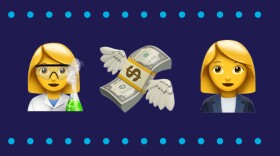
Cardiff Garcia
Cardiff Garcia is a co-host of NPR's The Indicator from Planet Money podcast, along with Stacey Vanek Smith. He joined NPR in November 2017.
Previously, Garcia was the U.S. editor of FT Alphaville, the flagship economics and finance blog of the Financial Times, where for seven years he wrote and edited stories about the U.S. economy and financial markets. He was also the founder and host of FT Alphachat, the Financial Times' award-winning business and economics podcast.
As a guest commentator, he has regularly appeared on media outlets such as Marketplace Radio, WNYC, CNBC, Yahoo Finance, the BBC, and others.
-
Data shows that the police's disproportionate use of force is associated with the fact that it is hard to prosecute officers for wrongful killings — and one possible reason for that is police unions.
-
Faced with the prospect of closing up shop because of the coronavirus, some companies are retooling and pivoting to keep their doors open, and their workers employed.
-
The leather industry hit a peak in 2014. Retailers were forced to find cheaper, artificial alternatives. Now, leather is struggling to regain the market share it lost. The trade war is not helping.
-
Lazy. Coddled. Afraid of Adulthood. These adjectives are often used to describe millennials. But are they accurate?
-
E-commerce set out to change the way we shopped. But increasingly, online stores are opening up physical stores as a way to attract more sales. This new trend is called clicks to bricks.
-
The U.S. is a big place, nearly 1.9 billion acres. Stacey Vanek Smith and Cardiff Garcia from NPR's daily economics podcast, The Indicator, look at how all that land is divvied up.
-
WeWork has been cropping up in cities all over the world. And now, it's planning to go public. More and more Americans are expected to work from flexible workspaces over the next decade.
-
A report from Glassdoor reveals which industries have the starkest gender pay gaps.
-
On eBay right now: A baby T-Rex. The price? $2.95 million.
-
The first few months of 2019 looked troubling. But now we seem to be on the upswing.




